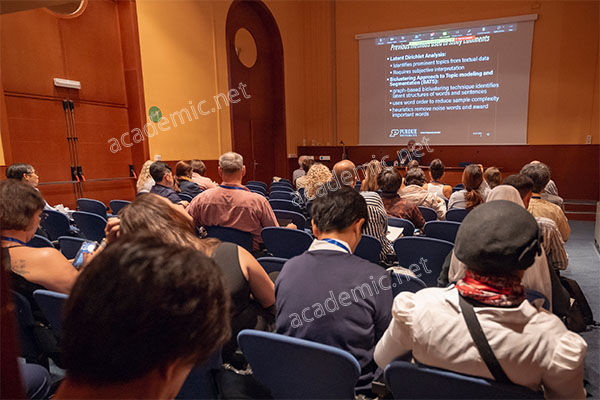Benefits of Attending Academic Conferences
Participating in academic conferences offers numerous advantages for researchers, scholars, and professionals. Here are the key benefits:

1. Academic Exchange
- Presentation of Research: You can showcase your research findings, receive peer feedback, and enhance your research's visibility.
- Access to Cutting-Edge Research: Stay informed about the latest developments, trends, and breakthroughs in your field.
2. Networking Opportunities
- Professional Connections: Forge connections with peers, experts, and potential collaborators, expanding your network.
- Career Advancement: Engage with industry leaders and potential employers, opening up new career prospects.
3. Learning and Professional Growth
- Knowledge Update: Attend lectures, workshops, and seminars to learn new research methodologies, technologies, and theories.
- Continuing Education: Earn continuing education credits and enhance your professional skills.
4. Recognition and Credibility
- Academic Prestige: Presenting at conferences can boost your academic reputation and influence.
- Publication Opportunities: Many conferences publish their proceedings, providing a formal publication record.
5. Inspiration and Innovation
- Spark Creativity: Interact with other researchers to inspire new research ideas and innovations.
- Interdisciplinary Collaboration: Engage with experts from different fields, fostering interdisciplinary research collaborations.
6. Career Development and Opportunities
- Teaching and Speaking Engagements: Conferences often offer opportunities to lead workshops or give lectures, adding to your professional experience.
- Funding and Grants: Discover and apply for research funding or awards.
7. Peer Review and Feedback
- Peer Evaluation: Your research will undergo peer review, improving its quality and receiving valuable suggestions.
- Audience Interaction: Engage in discussions with attendees for feedback and insights.
8. Global Perspective
- International Exposure: Gain a global perspective by attending international conferences and understanding diverse research methodologies.
- International Collaboration: Establish connections with researchers from various countries.
9. Personal Development
- Confidence Building: Public speaking and presenting research can enhance your confidence.
- Teamwork: Participate in conferences with colleagues or students, fostering teamwork.
10. Social and Cultural Experience
- Cultural Exchange: Experience and learn from different cultures, broadening your worldview.
- Networking Events: Many conferences include social events, providing informal networking opportunities.
11. Professional Certification and Continuing Education
- Continuing Education Credits: Earn credits for maintaining and updating professional qualifications.
- Certification: Some conferences offer training related to professional certifications.
12. Market and Industry Trends
- Industry Insights: Interact with industry professionals to understand market demands and industry trends.
Considerations:
- Cost: Conference attendance involves travel, accommodation, and registration fees, requiring budget planning.
- Time Management: Efficiently manage your time to balance conference participation with your regular work or research.
- Preparation: Prepare your presentation, poster, or paper in advance to ensure a successful showcase of your research.
Attending academic conferences not only fosters your academic and professional growth but also provides a platform for knowledge sharing, networking, and exploring new research opportunities. Remember to optimize your conference experience by leveraging these benefits for your career advancement.
